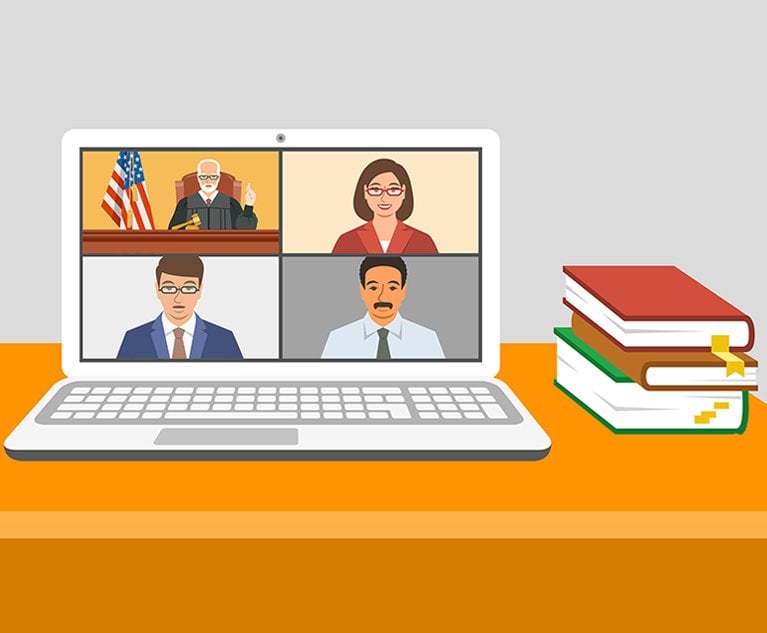Navigating the Future of Legal Proceedings With Seamless Remote Depositions Solutions
As modern technology proceeds to development, the combination of seamless solutions for remote depositions has actually ended up being crucial for legal professionals looking for effective and cost-effective means to carry out depositions. By exploring the intricacies of browsing the future of legal proceedings through smooth remote deposition options, a more clear understanding of the possibilities and complexities that exist ahead can be acquired.
The Surge of Remote Depositions
This change has been mainly driven by the demand for versatility, performance, and cost-effectiveness in legal procedures (REMOTE DEPOSITIONS). Remote depositions enable lawyers, witnesses, and court press reporters to participate from different places, eliminating the demand for physical visibility in a particular deposition space.
In addition, the advancements in video conferencing systems and digital tools have improved the total experience of remote depositions, ensuring clear audio-visual communication and protected documents of statements. Attorneys currently have the option to seamlessly schedule, record, and record depositions easily, streamlining the entire process.
As technology continues to develop, remote depositions are expected to end up being even more prevalent in the legal industry, offering a practical and reliable solution for conducting depositions in a hectic and interconnected world. (REMOTE DEPOSITIONS)
Advantages of Seamless Technology Assimilation
Just how does seamless technology combination improve the efficiency and efficiency of remote depositions in the lawful industry? Smooth technology combination plays an essential role in simplifying remote depositions, providing a myriad of benefits to lawful experts.
Furthermore, smooth modern technology integration enables secure and trusted information transmission, ensuring that sensitive information shared during depositions is protected. Advanced features such as online exhibitions, digital signatures, and video clip conferencing boost the general effectiveness of remote depositions, resembling the in-person experience with added ease. In addition, the assimilation of transcription services and AI-powered tools can further enhance the deposition process, conserving time and minimizing the margin of mistake.

Overcoming Difficulties in Digital Procedures
To successfully navigate digital process, lawyers have to resolve and overcome different difficulties that occur in the digital environment. One of the primary obstacles encountered in digital process is making certain safe and secure communication and data security. With sensitive info being shared online, maintaining client privacy and protecting against data breaches is vital. Additionally, technological difficulties such as poor net connection or audio/video issues can disrupt the circulation of process and influence the top quality of communications in between individuals. Legal experts should likewise adapt to the lack of physical presence, which can prevent non-verbal signs and interaction subtleties vital in legal contexts. Additionally, preserving interaction and focus in virtual setups can be testing for both legal teams and witnesses, possibly influencing the published here efficiency of the procedures. To alleviate these challenges, attorneys must spend in reputable innovation, establish clear methods for virtual procedures, give training on online rules, and ensure backup strategies are in location to address technological concerns quickly. By proactively addressing these challenges, attorneys can improve the performance and efficiency of digital process.
Ensuring Protection and Conformity Procedures
In the realm of lawful procedures, securing security and ensuring compliance measures is of vital value for keeping trust fund and promoting the honesty of the process. With the change towards remote depositions, guaranteeing the safety and security and privacy of sensitive information traded throughout these proceedings is vital. To attain this, lawyers need to utilize secure on the internet platforms that provide end-to-end security, safe and secure gain access to controls, and conformity with sector laws such as HIPAA and GDPR.

Future Trends in Legal Tech Integration
As the legal landscape proceeds to advance with remote deposition options emphasizing safety and conformity, the assimilation of cutting-edge lawful technologies is positioned to form future patterns in the lawful sector. One noticeable fad that is getting grip is making use of expert system (AI) and artificial intelligence in lawful technology. AI-powered tools can assist in lawful study, contract evaluation, and even forecasting instance outcomes based on historical information. This integration simplifies processes, reduces human mistake, and boosts decision-making abilities.
Moreover, cloud-based remedies are ending up being increasingly preferred in the legal he has a good point market. Cloud modern technology provides enhanced flexibility, scalability, and access, enabling lawyers to function collaboratively from anywhere with a net connection. This fad not just improves performance however likewise promotes cost-effectiveness by reducing the requirement for physical infrastructure and upkeep.
In addition, blockchain modern technology is making its way right into legal tech assimilation, offering protected and transparent ways to manage delicate info, enhance transactions, and confirm the authenticity of legal records. By welcoming these future patterns in legal technology combination, legislation firms can stay in advance of the contour, enhance customer service, and adapt to the transforming demands of the industry.
Conclusion
To conclude, the assimilation of seamless remote deposition services has reinvented lawful procedures by supplying countless advantages such as enhanced efficiency, cost-effectiveness, and availability. In spite of facing challenges in digital process, innovations visit site in modern technology continue to resolve security and compliance problems (REMOTE DEPOSITIONS). As the legal industry embraces more assimilation of innovation, future trends aim in the direction of an extra streamlined and effective lawful procedure